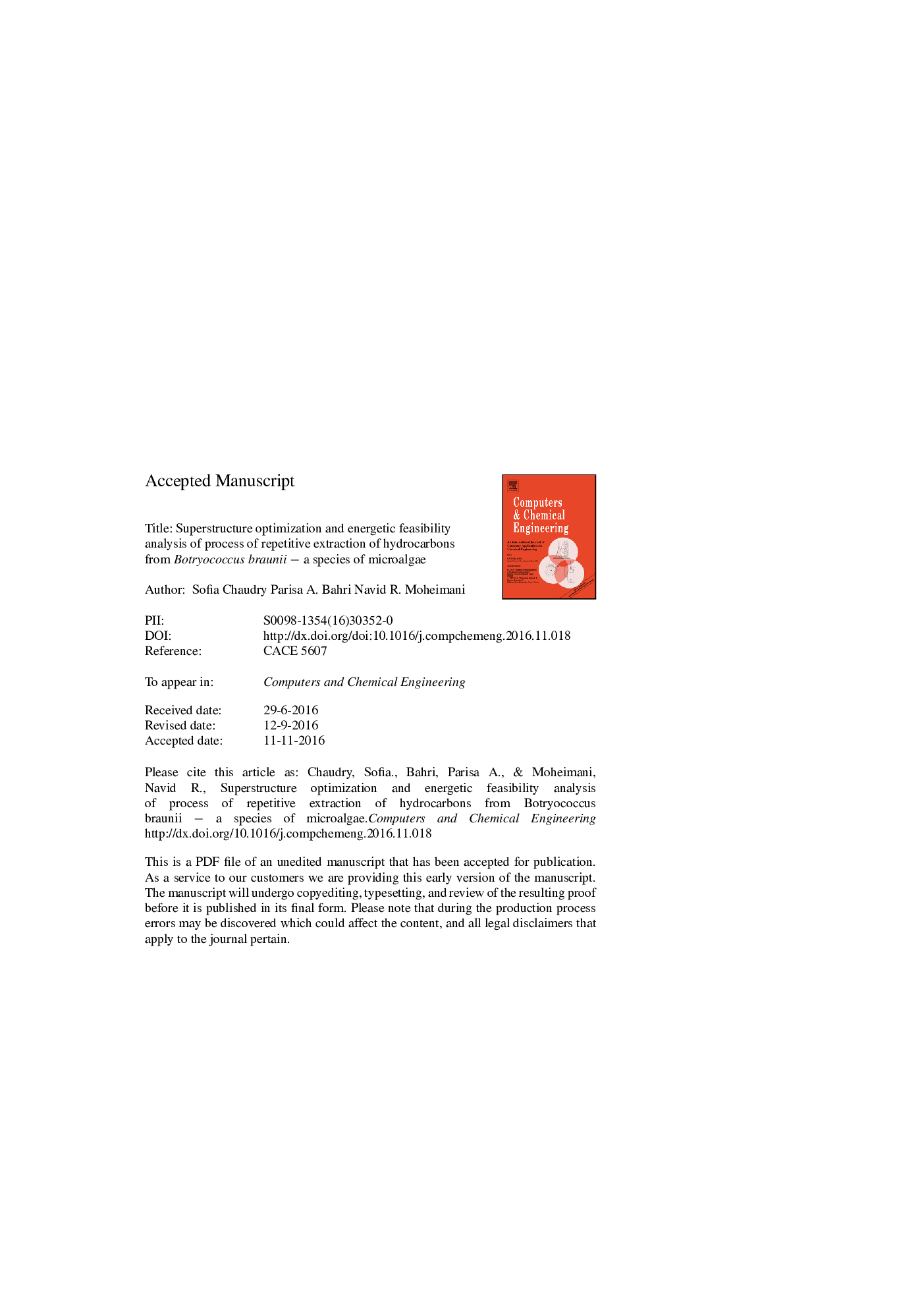| Article ID | Journal | Published Year | Pages | File Type |
|---|---|---|---|---|
| 4764751 | Computers & Chemical Engineering | 2017 | 32 Pages |
Abstract
Microalgae are potential resources for producing renewable fuel; however, the process of fuel production from microalgae is itself highly energy consuming and not commercially feasible, yet. Repetitive non-destructive extraction, also called repetitive milking, is a novel method for production of hydrocarbons from Botryococcus braunii - a species of microalgae. In this study, superstructure optimization technique is used to analyse the energetic feasibility of the repetitive milking process and to find the suitable technology options for each stage involved. The repetitive milking process is found to be energetically positive with an average net energy ratio of two for the optimum route. Open pond, cylindrical sieve rotator filter and nanofiltration were found to be the optimum technologies for growth and hydrocarbon production, dewatering and solvent recovery stages, respectively. Belt filter press and vibratory screen filter for dewatering and distillation for solvent recovery are also found to be energetically feasible technologies.
Related Topics
Physical Sciences and Engineering
Chemical Engineering
Chemical Engineering (General)
Authors
Sofia Chaudry, Parisa A. Bahri, Navid R. Moheimani,
